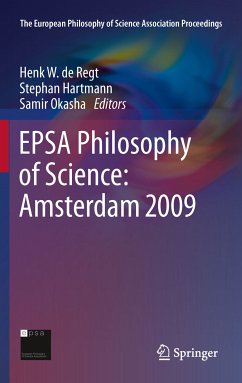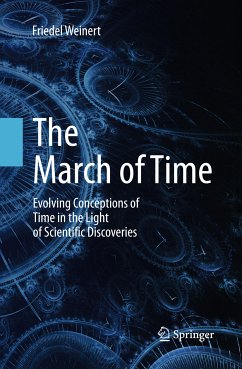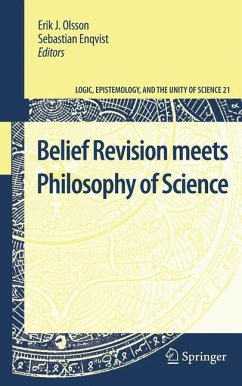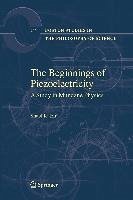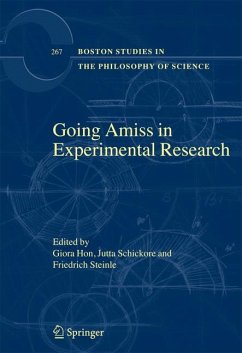
Going Amiss in Experimental Research (eBook, PDF)
Versandkostenfrei!
Sofort per Download lieferbar
72,95 €
inkl. MwSt.
Weitere Ausgaben:

PAYBACK Punkte
36 °P sammeln!
Like any goal-oriented procedure, experiment is subject to many kinds of failures. These failures have a variety of features, depending on the particulars of their sources. For the experimenter these pitfalls should be avoided and their effects minimized. For the historian-philosopher of science and the science educator, on the other hand, they are instructive starting points for reflecting on science in general and scientific method and practice in particular. Often more is learned from failure than from confirmation and successful application. The identification of error, its source, its con...
Like any goal-oriented procedure, experiment is subject to many kinds of failures. These failures have a variety of features, depending on the particulars of their sources. For the experimenter these pitfalls should be avoided and their effects minimized. For the historian-philosopher of science and the science educator, on the other hand, they are instructive starting points for reflecting on science in general and scientific method and practice in particular. Often more is learned from failure than from confirmation and successful application. The identification of error, its source, its context, and its treatment shed light on both practices and epistemic claims. This book shows that it is fruitful to bring to light forgotten and lost failures, subject them to analysis and learn from their moral. The study of failures, errors, pitfalls and mistakes helps us understand the way knowledge is pursued and indeed generated. The book presents both historical accounts and philosophical analyses of failures in experimental practice. It covers topics such as "error as an object of study", "learning from error", "concepts and dead ends", "instrumental artifacts", and "surprise and puzzlement".
This book will be of interest to historians, philosophers, and sociologists of science as well as to practicing scientists and science educators.
This book will be of interest to historians, philosophers, and sociologists of science as well as to practicing scientists and science educators.
Dieser Download kann aus rechtlichen Gründen nur mit Rechnungsadresse in A, B, BG, CY, CZ, D, DK, EW, E, FIN, F, GR, HR, H, IRL, I, LT, L, LR, M, NL, PL, P, R, S, SLO, SK ausgeliefert werden.




